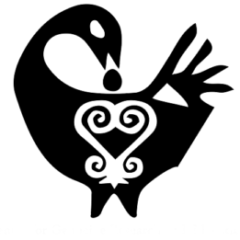When I was growing up, I didn’t have any role models for how to have a healthy disagreement. In my family, disagreements were a zero-sum game. You were either right or you were wrong. Being wrong usually meant you were going to be punished. There was no room for being partially right or having some valid points. I wasn’t allowed to defend myself either which meant I often wasn’t heard. This happened outside the home too.
Reflecting on this the other day, I realized how this affected how I have approached disagreements as an adult. In the early years of my marriage, I had a difficult time admitting when I was wrong. Admitting I was wrong brought fear. Fear that I was unlovable. Fear that I had done something so egregious I was unworthy. Fear that I would be punished. In my professional life it led to being unable to let go of my viewpoint. I told myself that I was playing the devil’s advocate to get my colleagues to think through their position’s pros and cons, but in reality, I didn’t want my ideas to be dismissed. It didn’t help that I worked in an environment where my voice often went unheard.
I think for many people, entertaining a different viewpoint means that somehow their voice is being silenced. In today’s polarized environment, every disagreement feels like a zero-sum game. But it doesn’t have to be that way. So often today, disagreements are laced with assumptions about the other person’s motives and character that may not be true. “They” are bad, evil, and stupid and “we” are right and smart. Left unchecked, polarized disagreements have historically led to Very Bad Things. I’m encouraging you to think about how disagreements were modeled to you as a child and how that has affected how you deal with them now. Particularly in today’s polarized environment, we need to think about how we disagree with people.
Although easier said than done, what is needed is a curiosity about why people hold the views they do. We need to be able to sit down with people we don’t agree with and hear them out. I am currently developing training to learn how to do just this. The goal of the training is not so that you can convince other people that their viewpoint is wrong and yours is right. It is not even that you have to agree at the end of the conversation. The point of the training is that at the end of the conversation you can begin to see someone you disagree with as a fellow human being with experiences that have shaped how they see the world. If you can walk away from the conversation being able to say, “I don’t agree with you but I understand now why you feel the way you do” then the training will have been a success.
I anticipate the training will be available to the public sometime in July. The training will consist of an hour of learning why we should try to understand those we disagree with and how to do that respectfully. The second hour of the training will be time for you to practice what you’ve learned and to give feedback. Over the next couple months, I will be posting things for you to think about and updates on the training. If you are interested in the training either for yourself or for your organization, please contact us!
